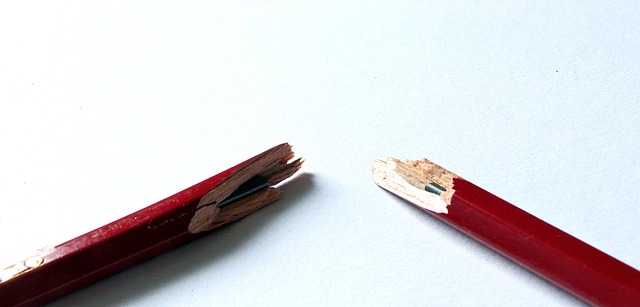Picture this: you´re sitting in front of your computer and staring hopelessly at an empty screen. Your thoughts are running in every direction (except the right one) and suddenly you realise: you’ve got writer’s block.
In this blog I’ll give you a few handy tips on how to prevent writer’s block. Try to see this post as a kind of first aid kit when you get stuck in the middle of your writing process.
So what is a writer’s block?
A writer’s block is when you’ve been trying to write for ages and you just can’t produce anything. A common issue every writer struggles with from time to time. When you’ve found yourself like this for a while, that is indeed what’s known as the dreaded writer’s block. Keep on reading to find out how to get over writer’s block.
What to do when you’re struggling with writer’s block
YouTube video: How to get over writer’s block.
1. Take a break
What causes writing to become so difficult from time-to-time? Especially if you already know everything up front.
How is it that you sometimes just can’t ´put pen to paper´, when the brief is lying in front of you and it seems to all be there, word for word? Why are the words not hitting paper like machine gun bullets?
All too often I find myself sitting in front of a blank screen, only to realize later that I didn’t really know at that point what it was that I wanted to write; and I could have been busy with other (much nicer) things in the meantime.
With creative writing, there is nothing wrong with a fair amount of procrastination. During that downtime you make space at the back of your mind to ruminate on the subject matter.
Good script writers can be lazy. This is not a bad thing at all, because the longer you put off writing, the longer the story can mature in your head. Let the story rest for a while. Once you eventually sit down, all you have to do is; just write it on paper.
2. Have fun
While all the information is brewing in your head, fragments of the final story will be taking shape. Perhaps you will encounter, here and there, questions that you or your client still need to find answers for. Sometimes you run into a great line that you can quickly scribble down.
I watch out that I don´t take on too much information about the subject though. Like that slightly too enthusiastic account manager, with a product description consisting of four pages in part 11 alone. Nice, but it is possible that knowing too much about your subject can be counterproductive.
What is nice about this phase is that it makes no difference whatsoever what you come up with, or what great (or bad jokes) you make. Anything goes at this point – it’s not down in black and white, yet.
Maybe the text that you´re going to write doesn’t lend itself to jokes and gags at all. But in letting your mind wander like this, you give yourself the freedom to write a good story. Or at least to have fun while you´re trying to write.
Or to put it another way, fun to read or listen to. Really serious stories can sometimes be written in such a way that they invite you not to engage with them. If you let your mind run free, then you can find interesting ways into even the trickiest topics.
I once applied for a job with a well-known copywriter. He read my texts and then fixed me with a penetrating stare and said: “Why is it that the pieces you wrote for radio are great, and the texts that you wrote to brief seem to have been a torture to write?”
Fun, that’s what it’s all about.
3. Write what comes to mind
Do you get hyper-focused? Or a perfectionist? Then writer’s block will be looming over your shoulder all too quickly. And your listener or reader will also feel that something isn’t quite right.
- So, putting it off a bit is the first thing, getting down to work is the second. After the procrastination phase, you should have all your thoughts in a tidy row. Possible blanks or obstacles within your story are resolved.
Here and there you’ve already thought up a nifty little wit. Now the real writing can begin.
Still, there is no guarantee that you won’t find yourself once more staring at an empty screen. Personally I often fall into the trap of wanting it to be perfect; and the spark just never hits the paper. But ´I can’t do it´, is not an option.
That’s why it’s handy to first just write down everything that comes to the front of your mind. Without worrying about peripheral things like tone of voice, woolliness, target audience or even grammatical errors.
If you start fretting about those kinds of things straight away then in no time at all you will find yourself completely stuck. At this stage you can write down everything that comes into your head, or simply just get the broad brushstrokes down (i.e. write down point for point what it is you want to say).
Just start writing. Yes, sounds easier than it is, but sometimes that’s just the best thing to do. When waiting too long, you might start to doubt your preparation.
Maybe you suffer from cold feet and want to be overly prepared. You ask yourself: do I know everything? Am I fully prepared? Let it go.
Just start writing and don’t worry about the way it looks or sounds. Maybe there are typos and spelling mistakes everywhere. No worries, just write it down. The mistakes are there to be corrected. But that’s a concern for later.
4. Don’t worry about the details
Do you notice that you’re playing around with pretty words and sentences? Stop that. Copy-legend Ron Meijer said to me, during one of his lessons: “What is it that you actually want to say..? Well, write that down then.”
Is your deadline approaching? Can you feel it breathing down your neck already? Good. You need to produce something quickly now. There’s a big chance that you start thinking more simply as a result. No more time to lose worrying about peripheral stuff.
Don’t fuss too much about the word count either. To start with you will always have more words than necessary. If you don’t write them down there’s a good chance they will keep rampaging around your head screaming for attention. Only when you have them down can you put a big, fat line through them.
While you’re writing, don’t look back at what you’ve written either. That will only make you liable to get distracted by the lines that don’t quite work yet. You’ll come to those in the next phase.
Have you got it all down? Then, if it’s generally OK, you have yourself a nice little story. Now is the time to structure it.
5. Structure your story
Print the whole thing out, get a pen and start numbering. Number every line or paragraph, and in this way decide what is the best order for them to go in.
David Bowie went a step further. He used to take a pair of scissors, cut out all the individual sentences, and then put them in the best order. In the video below he shows how he goes about his work, and how he used this method to write Moonage Daydream (ignore the coke next to him on the table ;-).
There will also be sentences, and paragraphs, that don’t have a number. You can scrap these and keep them in reserve. Myself, I move them down to another page, so that I don’t ever have to ask myself what it was that I had there.
What you now have in front of you is a rough draft. When your rough draft is on paper, take a seat and read it through. The chance that your story will go from A via B to D and end at Z is quite small. See what the correct order is by writing it down in numbers.
Establish the order by adding numbers to each small paragraph. Then, start putting the paragraphs in the correct order by following the numbers. Check if your script delivers the message better now. Does it? Then your script is almost ready.
6. Refine the details
Congratulations! This is the point at which you can safely say you have left your writer’s block behind, and the chance of falling back into hopelessly romanticising the writing process is virtually impossible.
You have written down what you wanted to say, the structure is pretty much there, and if you have followed this method all you need to do now is add the finishing touches.
In other words, only now does refined writing start. Scrap superfluous words, rethink your best metaphors, make sure that it works well stylistically and that the reader or listener feels personally engaged. Are you working on a voice over script? Then check out my previous blog post to see what other tricks you can use for creating great video scripts.
These tips help me when I’m writing internet copy, mail-outs, scripts, blogs and radio commercials. So, you can see: preventing writer’s block ain’t rocket science. It’s more about going through the process one step at a time, and being alert so that you don’t skip any of them. And, as long as you keep it fun for yourself, you’ll see that reflected in the final result.
That’s the essence of classic writer’s block: wanting to go too fast, making your thinking too complicated, and being perfectionist. Do these and you´re walking straight into the writer’s block trap. So, stop writing, step away from your keyboard and only come back when the time is ripe.
7. Don’t look back until you’re done.
If you’re in the right flow and writing goes well: go on! Don’t look back a few lines to see what you wrote there. That way you will see things that you don’t really like, such as weird sentences or spelling mistakes.
That is the death of your flow. If you look back, it’s even harder to pick up the thread again. So don’t look back, just get it out!
For example, if you have to write for a web video that’s a minute and a half long, you should be done in about three minutes. Here you go. You have your rough draft.
8. Prevent writer’s block by taking breaks
When you’re ready with your rough draft, take a long break. Go read a magazine or watch some series, play Fortnite, go call your mother, or your mother-in-law.
Do something different. Anything to get that story out of your head. By doing so you will finish your script in a fresh way. Make sure you’re going to think about other things. Eventually, an hour or two, or maybe a day later, you will sit down again in front of your screen and think: What did I actually write?
You now can read the script with fresh eyes, as if you were a listener of the story. This is the moment where you turn your text into something beautiful. And writer’s block will be far behind you!
Prevent writer’s block
How would you prevent writer’s block? Let me know in the comments!
Ready to upgrade your script? Read more about it in our ebook with tips on writing captivating voice over scripts.




